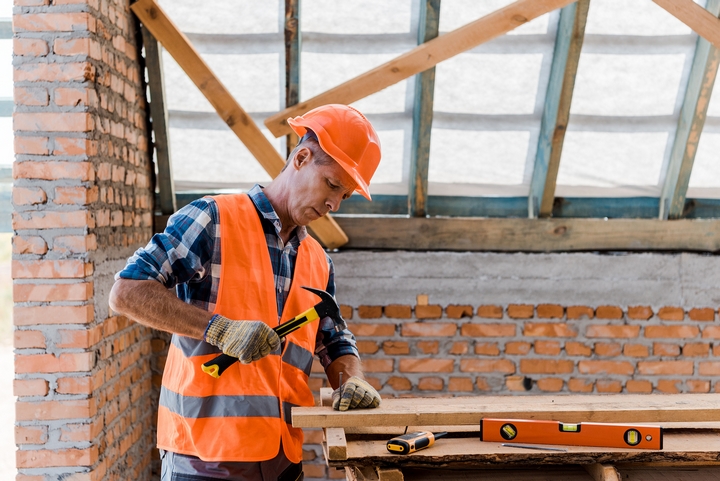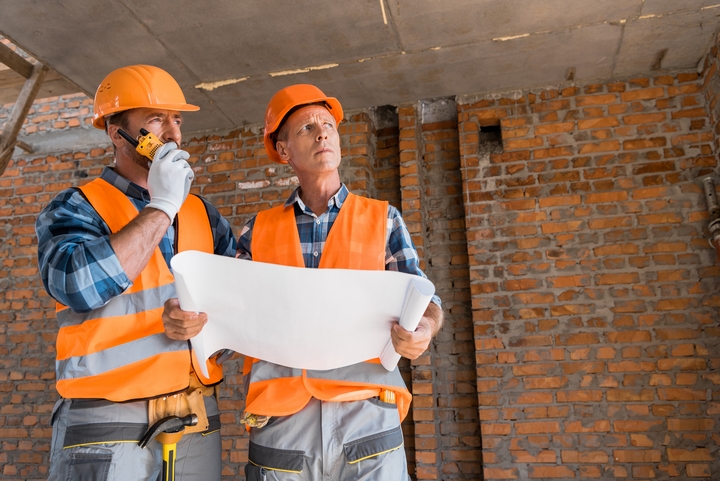Are you interested in working with your hands? Does the thought of contributing to the assembly of a building get you excited? Do you want a skill set that is useful both in your occupation and at home? Answering yes to all three means that a career in the building trades is for you.
Getting into the construction industry is not for the faint of heart. You will be working inside and outside, all year long in every type of weather. Getting dirty and sweaty comes with the job, but at the end of the day, you can look back and be proud of your accomplishments in your training and what you have helped build.
Start your construction journey today and work alongside the men and women of your community. Let’s take a look at how to get into the construction industry.
Types of construction jobs

In construction, there are many trades and professions to pick from. The path you take will become a huge part of your life because there is extensive training in most construction areas. Although there are many options for becoming a construction worker, the career paths differ for each job.
Some common construction jobs include:
- Labourer
- Equipment operator
- Surveyor
- Safety officer
- Engineer
- Architect
Other contractor jobs include:
- Carpenter
- Electrician
- Plumber
- Painter
- Glazer
- Roofer
These are the main occupations that you can choose. Along with your selection, there is a steep learning curve both in-class and on the job. Often, recruiters search for those with some form of experience. Talent acquisition services target those who are already experienced in the construction industry.
Begin as a construction labourer

This construction job is a non-trade position and considered entry level. Whether you work in residential or commercial, starting as a labourer will give you a taste of the working environment and see how buildings are constructed. You will also be able to observe other trades and decide if you have an interest in any of these.
Becoming a labourer doesn’t have to be a stepping stone either. You can work your whole life in this position and make good money doing it. Most companies have a core group of people that are kept employed all year, regardless of how busy they are. Labourers are always needed and are usually the first ones and the last ones on construction projects.
It is hard work that involves cleanup, moving material and lots of heavy lifting, though. As you gain experience and skills, you can drive some machinery, build scaffolds, and become a labour foreman with your crew. There is always a job for a hard-working labourer.
Start a construction apprenticeship

Beginning a trade can take you through pre-apprenticeship training, on-the-job training and back to school. You work through your apprenticeship at a construction company Calgary towards becoming a full journeyman. This is a combination of education, supervised experience and examination.
On smaller residential jobs, you may work in a trade and gain skills over time without going through a recognized apprenticeship program. Still, this is the path to certification on commercial and industrial construction sites. Schooling is approximately 20% of your time, with 80% on the job, working alongside journeymen to gain experience and learn the trade. Most apprenticeships are four years, and then you take a citification exam to become red sealed. With this, you can work anywhere in Canada as it is nationally recognized and shows you are fully qualified.
There are grants available to help pay for schooling and a national skills competition for apprentices to compete. Ultimately, going through an apprenticeship gives you all the skills required for your chosen trade. These skills will also help you work on your own house, do side jobs for extra cash or even start your own business.
Post-secondary education for construction

There are many non-trade occupations in the construction industry as well. These require training from colleges, universities and technical institutes to gain knowledge and experience and earn diplomas and degrees. These include:
- Health and safety officer
- Administration
- Engineering
- Project management
- Self employment
- Estimating
- Property inspector
- Superintendant
- Training director
- Finance
- Human resources
- Labour relations
Enrollment requirements vary, but a high school diploma or GED is usually the minimum.
Transferable skills for construction

Some trades use similar equipment and materials, and that training can be used as you move from job to job or decide on a different career path. Once a journeyman, you may want to go further by becoming a foreman, supervisor or even higher management. The skills mastered along the way will be vital in these roles.
Getting into construction doesn’t require any experience at all. It is instead the desire to learn and work hard that is necessary. Unlike many other jobs where you need qualifications before you can even start, the construction industry is designed to be a place of training. Skills are passed on practically, and everyone, before you and after, go through the same process.
You are paid according to your level, but the rate goes up fast as you progress through an apprenticeship, and when you are certified, you can pass on your knowledge to the next generation of workers.




